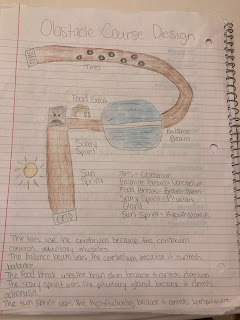Don't let anyone tell you that teaching is a cake walk. That people do it for the summers off or weekends or federal holiday's. Don't let people tell you that 'those who can't do, teach." Because you know what? -teaching is a lot of doing. More than can be written in a book or described in a blog post.
Every teacher has their Tupperware container of strategies and lesson plans. Their go to activities or video clips and warm-ups. There is a certain level of comfort every teacher has- maybe it takes awhile, but they find it. And each one is unique.
Honestly teaching is a set of parameters, and where each of us as an educator falls within them, depends on a few factors. Angles. Parallel or perpendicular. But we fall within them. Because once we take the vow, commit to the profession, we establish our location. Some on the fringe, others well in the center. But, we choose early on where we want to reside.
But as we unpack and settle in- we each have to varying degrees, our Tupperware tool box, full of strategies to cope with and work with the following: Just thinking about them means you recognize them. Some are familiar others foreign but all need our attention.
- Teacher and student resilience
- Following the rules
- Bending the rules
- Fortitude of action over words
- Keeping our ego in check
- Binoculars and microscopes
- Listening with intention
- Responding not reacting
- Is anybody here? Is anybody listening?
- Leave your pacing guide behind, must we color in the lines?
- Each class is different, each student unique
- Learning is not universal
- Lesson plans do not mean ease of execution, they only give you a starting point
- Teams are important, no matter how long you have been teaching
- Technology is not a replacement for anything, just a way to make things more accessible
- Zoom and Room are equal
- Digital and digits- never one shall overtake the other
- Stations are great when they are purposeful, not just another way to read while standing
- Why long - if you can be succinct and leave more room for exploration
- Homework should be minimal to leave room for home thinking
- Do we ever master teaching or are we always in progress?
- Education is an amalgam of what you like, what they need, and the time and place of collision
- Brick and mortar versus keys and screens, should be minimal- Zoom is a classroom, it needs inclusion, innovation and your full attention















